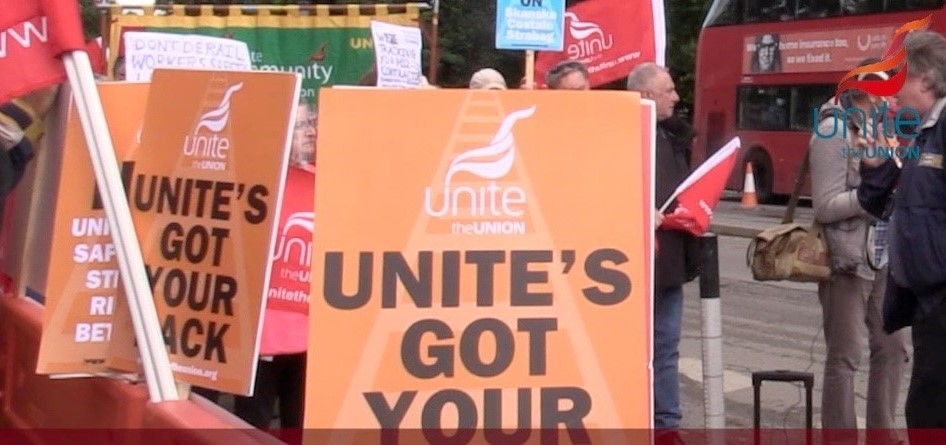‘Totally committed’ to justice
Unite is closing in on forcing Cullum McAlpine – one of the “key architects” behind the widespread blacklisting of construction workers by the infamous Consulting Association – to account for his actions in court.
The news was revealed on the tenth anniversary of the uncovering of the blacklisting scandal, which saw 3,123 construction workers being deprived of their livelihoods, often for belonging to a trade union or raising a safety issue.
Workers were also denied employment after being labeled “troublemakers” or “militants” by the Consulting Association, with some having details of their personal relationships entered onto the list.
Unite is taking fresh legal action on behalf of the workers blacklisted by the Consulting Association, whose services were used by the majority of major UK construction firms.
Unlike the previous court case which concluded in 2016, Unite will be seeking to ensure Cullum McAlpine, the original chairman of the Consulting Association and a director of Sir Robert McAlpine, is required to give evidence in court under oath.
The trial is set to begin on Tuesday, June 4 and could last for six weeks.
Unite assistant general secretary Howard Beckett said Unite is “totally committed” to ensuring the key individuals behind blacklisting workers are required to account for their crimes openly in court.
“This is the minimum that the affected workers deserve. They need to see those responsible in the dock and finally forced to account for their actions,” Beckett said.
“The forthcoming court case will finally ensure this will happen.”
The massive and systematic blacklisting of construction workers was revealed following a raid on the Consulting Association’s offices by the Information Commissioner’s Office (ICO) on February 23, 2007.
It was subsequently discovered that widespread blacklisting checks were occurring on the Olympic Games build project.
As a result of the 2016 court action against eight construction companies – Balfour Beatty, Carillion, Costain, Kier, Laing O’Rourke, Sir Robert McAlpine, Skanska UK and Vinci Plc – Unite (including construction union Ucatt which subsequently transferred into the union) secured £19.34m for 412 blacklisted workers.
The compensation was for breach of confidence/misuse of private information, breach of the Data Protection Act 1988, defamation and loss of earnings.
The ICO raid was a result of the Consulting Association’s failure to register as a data controller and the organisation’s head Ian Kerr was subsequently fined £5,000 for data protection offences.
The companies could not be prosecuted for blacklisting workers because blacklisting was not illegal in 2007.
Since the discovery of the Consulting Association’s operations, blacklisting has not been eradicated in the construction industry.
In 2017, a debate in parliament revealed how contemporary blacklisting was still occurring on major projects including Crossrail.
Unite assistant general secretary Gail Cartmail said, “There remain employers in construction and other industries who continue to believe it is somehow acceptable to engage in the disgusting and deceitful practice of blacklisting, to ruin people’s lives.
“We are seeing blacklisting â€outsourced’ to labour suppliers at the beck and call of large firms and acting as unaccountable instigators of union busting.
“That’s why Unite is still fighting for justice for those who were previously affected but is also fighting to stamp out contemporary blacklisting.”
 Like
Like Follow
Follow

